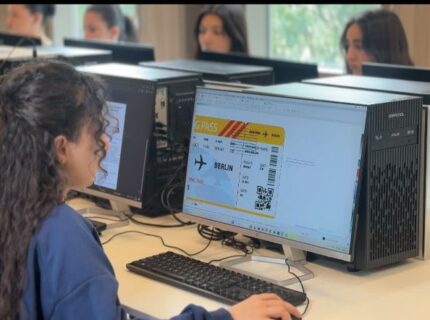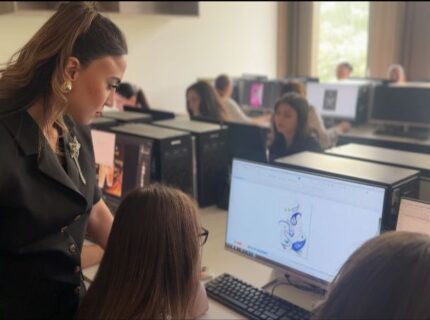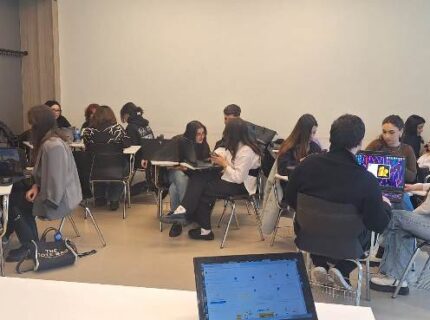UNEC Transitions to Project-Based and Problem-Based Learning Models
The Azerbaijan State University of Economics (UNEC) has officially adopted Problem-Based Learning (PBL) and Project-Based Learning methodologies within its educational framework.
These pedagogical approaches, widely implemented across leading global academic institutions, aim to equip students with in-depth knowledge and competencies aligned with the evolving demands of the modern labor market.
The core objective of the Project-Based Learning model is to engage students in addressing real-world challenges. This approach fosters critical thinking, creativity, analytical reasoning, and collaboration skills that are essential in today’s professional environment. By placing students at the center of the learning process, PBL serves to bridge academic theory with practical application.
At UNEC, the implementation of the new teaching model commenced on February 17 at the UNEC Design School. Initially, the approach is being piloted across six academic subjects involving eleven student groups.
The development and rollout of the project were spearheaded by Israeli expert Dan Freifeld, in collaboration with five faculty members of the UNEC Design School Arzu Khalilova, Lidiya Safronova, Parvin Namazova, Farida Novruzlu, and Aytan Yusifkanan under the leadership of the project’s coordinator in Azerbaijan, Sanubar Safiyeva. To enhance the pedagogical capacity of academic staff, a series of professional development trainings were organized with the participation of both local and international experts.
As part of the initiative, UNEC Rector, Professor Adalat Muradov, attended several PBL sessions at the Design School. He highlighted the introduction of this model as a strategic milestone in the university’s educational transformation and noted that there are plans to expand its application to other disciplines in the near future.



